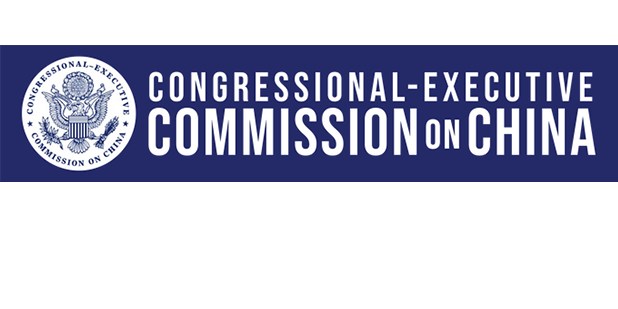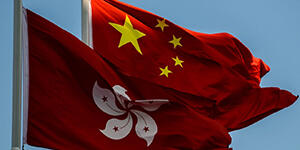
Talking Points
October 11 - 20, 2010
“Throughout China you will find sayings from Chairman Mao. Many of the Chairman’s sayings center around ‘practice’.“Borrowing from the Chairman the old ‘Practice makes perfect’, I suggest you become acquainted with using the enclosed chopsticks.”
 |
| Premier Zhou Enlai shows the President how it's done. (White House photo) |
Chapin, deputy assistant to the president, and others had been working to prepare for the Nixon trip for months. Because the U.S. didn’t have diplomatic relations with Beijing, the U.S. government had none of the usual diplomatic infrastructure in place to support the visit. Where would they go, what would be done, and who would be involved all had to worked out. How would the President stay connected to the government he led in the U.S. and how would news coverage be facilitated? These are just a few of the questions to be examined at USC on Wednesday, October 13 by Chapin and Larry Higby, the president’s assistant chief of staff, and Colonel Jack Brennan, the president’s Marine Corps aide. The title of the event comes from Nixon’s toast in Shanghai on February 27, 1972,
 |  |
| President Nixon shakes hands with Premier Zhou Enlai, Feb. 21, 1971 | Pat Nixon and the President visit Evergreen Commune. |
 |
| Time, July 16, 1971. |
“Our action in seeking a new relationship with the People`s Republic of China will not be at the expense of our old friends.
 |
| Baidu image search for "this year's Nobel Peace Prize" (今年的诺贝尔和平奖) after the announcement of the Liu Xiaobo award on Oct. 8, 2010. By contrast, search engines based outside of China uniformly featured photos of Liu and his wife. |
Liu's wife Liu Xia is under effective house arrest. She was permitted to visit her husband and tell him of the award, but she is not being permitted visitors. You can read more about Liu in earlier issues of Talking Points (1, 2, 3).
Last week, ahead of the Nobel announcement, Chinese author Yu Jie spoke at USC. He referred to Liu Xiaobo as a representative of all Chinese determined to assert their right to free speech. We will make Yu's presentation available via our website later this week. Video of two recent presentations, Yang Zhongdong's discussion of the nature of the civil unrest that rocked Xinjiang in 2009 and Rong Ying's discussion of China-India relations are now available at the USCI website and at our YouTube channel.
Best wishes,
The USC US-China Institute
china.usc.edu
Write to us at uschina@usc.edu
Subscribe to Talking Points at china.usc.edu/subscribe.aspx
Support the USC US-China Institute with your tax deductible gift at giveto.usc.edu/
Events
USC | California | North America | Exhibitions
USC
 10/13/2010: The Week that Changed the World: Nixon Goes to China and China in Today’s World
10/13/2010: The Week that Changed the World: Nixon Goes to China and China in Today’s World
USC Davidson Conference Center, Alumni Room
University Park Campus 3415 S. Figueroa St., Los Angeles , CA 90089
Free and open to the public
Time: 4:00PM - 7:00PM
The USC U.S.-China Institute and the Richard Nixon Foundation and Nixon Center invite you to attend two panels focusing on the opening of China, and on what China’s rise means for the world.
 10/13/2010: A City of Sadness
10/13/2010: A City of Sadness
The Ray Stark Family Theatre
George Lucas Building, SCA 108 900 W. 34th Street, Los Angeles, CA 90007
Cost: Free
Time: 7:00PM
A City of Sadness, directed by Hou Hsiao-hsien, will be screened at the USC School of Cinematic Arts.
 10/17/2010: The Everlasting Flame: Beijing 2008
10/17/2010: The Everlasting Flame: Beijing 2008
The Ray Stark Family Theatre
George Lucas Building, SCA 108, 900 W. 34th Street, Los Angeles, CA 90007
Cost: Free
Time: 12:00PM
The Everlasting Flame: Beijing 2008, directed by Gu Jun, will be screened at the USC School of Cinematic Arts.
 10/20/2010: EASC Informational Sessions for Global East Asia 2011
10/20/2010: EASC Informational Sessions for Global East Asia 2011
University of Southern California, WPH B27
823 W. 34th Street, Los Angeles, CA 90089-0127
Cost: Free
Time: 5:00PM - 6:00PM
The East Asian Studies Center will host an information session for Global East Asia 2011, a summer study abroad program to China, Japan, and Korea.
 10/15/2010: China and the United States: A Bi-National Forum on Cultural Relations
10/15/2010: China and the United States: A Bi-National Forum on Cultural Relations
Faculty Club
Heyns Room, Berkeley, CA 94704
Time: 9:00AM - 5:00PM
The University of California, Berkeley is hosting a forum in which participants from China and the US will review the history of relations between the two countries and consider the influence of culture, especially various elements of the arts, on the development of mutual understanding.
 10/15/2010: Expos and Olympics: Global Festivals and the Dynamics of Urban Change in Asia
10/15/2010: Expos and Olympics: Global Festivals and the Dynamics of Urban Change in Asia
6275 Bunche Hall, Los Angeles, CA 90095
Time: 2:00PM - 4:00PM
UCLA will hold a forum on urban change in Asia.
 10/15/2010: JIGU! Thunder Drums of China
10/15/2010: JIGU! Thunder Drums of China
Beckman Audtorium , Los Angeles, CA
Cost: Adults $19-$29, Youth $10
Time: 8:00PM - 10:00PM
Twenty-eight drummers, percussionists, and musicians from Shanxi Province in China take deeply rooted folk traditions and blend them with modern musical elements.
 10/18/2010: Changes in the World’s Workshop: How new laws, more demanding workers, and activist trade unions are transforming the Chinese workplace
10/18/2010: Changes in the World’s Workshop: How new laws, more demanding workers, and activist trade unions are transforming the Chinese workplace
110 Boalt Hall
School of Law University of California, Berkeley, CA 94720-2318
Time: 12:30PM - 1:30PM
The Berkeley Center for Law, Business and Economy hosts a lecture on labor laws and worker`s rights in China.
 10/18/2010: Bottom-Up Enforcement? Legal Mobilization as Law Enforcement in the PRC
10/18/2010: Bottom-Up Enforcement? Legal Mobilization as Law Enforcement in the PRC
202 Dwinelle Hall
University of California, Berkeley, CA 94720-2318
Time: 3:30PM - 6:00PM
UC Berkeley`s Center for Chinese Studies hosts Mary Gallagher who will give a talk about worker`s rights and labor laws in China.
 10/18/2010: Taiwan Stories: a Traveling Festival of Documentary and Feature Films
10/18/2010: Taiwan Stories: a Traveling Festival of Documentary and Feature Films
IEAS Conference Room, 6th Floor
2223 Fulton Street, Berkeley, CA 94720-2318
Time: 4:00PM - 7:30PM
The Center for Chinese Studies at the University of California, Berkeley will host a screening of two films: The Voyage to Happiness and Nyonya’s Taste of Life.
10/14/2010: China`s Double Helix: On Consumption and Risk
219 Aaron Burr Hall
Princeton University, Princeton, NJ 08544
Time: 4:30PM - 6:00PM
Nancy Chen will give a talk about consumption and risk in China at Princeton University.
10/18/2010: CHINA Town Hall: Local Connections, National Reflections
Live webcasts at town hall venues throughout the US
Santa Barbara Committee on Foreign Relations P.O. Box 60602, Santa Barbara, CA 93160
Time: 8:00PM
CHINA Town Hall: Local Connections, National Reflections, is a national day of programming designed to provide Americans across the United States and beyond the opportunity to discuss these issues with leading experts.
10/19/2010: Hot Market Watch: Selling to Brazil, China & India
The Xavier University, Southern Ohio District Export Council (SODEC)
Address: 525 Elm Street, Cincinnati, OH 45202
Cost: $150/$125 for nonprofit/government/add`l corporate attendees. Lunch only: $75.
Time: 7:00AM - 5:00PM
The Xavier University, Southern Ohio District Export Council (SODEC) International Trade Conference will provide market updates, tools, and resources for companies interested in selling to or expanding further into the Brazilian, Chinese, and Indian markets.
10/19/2010: Asia`s Growing Crisis: Floods, Droughts and Melting Himalayan Glaciers
Woodrow Wilson Center
The 6th Floor Flom Auditorium, One Woodrow Wilson Plaza, 1300 Pennsylvannia Ave, NW Washington, DC, Washington, DC
Cost: Free admission, RSVP required
Time: 12:00PM - 2:00PM
Guest speakers will address the many threats that melting glaciers pose to Asian countries in Washington, DC.
10/19/2010: The Last Days of Old Beijing: An Illustrated Book Talk by author Michael Meyer
Cohen Hall 402, University of Pennsylvania
225 S. 36th Street, Philadelphia, PA 19104
Cost: Free
Time: 4:30PM
Michael Meyer talks about his book about urban development in the hutongs of Beijing.
10/20/2010: Self-censorship Shown in Qing Dynasty Texts, 1644-1911
202 Jones Hall
Princeton University, Princeton, NJ 08544
Time: 4:30PM - 6:00PM
Fan-sen Wang will give a talk about Qing Dynasty texts and self-censorship.
ends 10/31/2010: Tibetan Landscapes by Zhonggui Shi
Tibetan Landscapes -- A Philosopher, Poet and Artist`s Spiritual Journey to Tibet
Bamboo Lane Gallery
410 Bamboo Lane, Los Angeles, CA 90012
Ends 11/21/2010: Not Only Time: Zhang Peili and Zhu Jia
The Gallery at REDCAT
631 West 2nd Street, Los Angeles, CA
Cost: Free
Time: 12:00PM - 6:00PM
Zhang Peili and Zhu Jia use of video and photography to navigate the sea of changes in contemporary China.
Ends 11/28/2010: Masterpieces of Chinese Painting
Smithsonian Institution
Washington, DC 20013
Cost: Free
Smithsonian hosts an exhibition to trace the development of Chinese painting over generations.
Ends 11/28/2010: Celebration: The Birthday in Chinese Art
Florence and Herbert Irving Galleries for Chinese Decorative Arts, 3rd floor
1000 Fifth Avenue at 82nd Street, New York, NY 10028
Cost: $10 for students
New York`s Metropolitan Museum of Art presents Celebration: The Birthday in Chinese Art. In Chinese art, the birthday is a celebration of a long and rewarding life. This exhibition—focusing on scenes of splendid celebrations and works incorporating the theme of longevity—draws together examples in many media from the Museum’s collection as well as some exceptional promised gifts.
Ends 12/05/2010: Woodcuts in Modern China, 1937-2008: Towards a Universal Pictorial Language
China Institute Gallery
125 East 65th Street (between Park and Lexington Avenues), New York City, New York 10065
Cost: Admission is $7, $4 for students and seniors, and free for children under 12. Admission is free on Tuesday and Thursday from 6 p.m. to 8 p.m.
The China Institute Gallery in New York will host a exhibition to display woodcut pictures that have been produced in China over the last 70 years.ends 12/31/2010: Ancient Arts of China: A 5000 Year Legacy
Bowers Museum
2002 North Main Street, Santa Ana, California 92706
Bowers Museum presents a collection that portrays the evolution of Chinese technology, art and culture.ends 02/06/2011: China Modern: Designing Popular Culture 1910-1970
Pacific Asia Museum
46 North Los Robles Avenue, Pasadena, CA 91101
The Pacific Asia Museum presents an exhibition that demonstrates how political ideologies and cultural values are transmitted via everyday objects in China.
____________________________________________________________________
Please invite others to subscribe to USCI’s free email newsletter for regular updates on events and programs. We will not share names or email addresses with any other entity. Click here to sign up.
We provide information about China-related events as a community service. If you would like your event considered for inclusion in the USCI calendar, please click here to submit event details.
You can support USCI by making a donation at http://www.usc.edu/giving/.
USC U.S. – China Institute
3535 S. Figueroa St.
FIG 202
Los Angeles, CA 90089-1262
Tel: 213-821-4382
Fax: 213-821-2382
Email: uschina@usc.edu
Website: http://china.usc.edu
You have received this e-mail because you have subscribed to receive updates from USCI. If you feel this message has reached you in error or you no longer wish to receive our updates, please click, unsubscribe, and enter "Remove" in the subject line.



